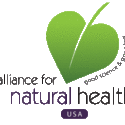-
About
- About Listly
- Community & Support
- Howto
- Chrome Extension
- Bookmarklet
- WordPress Plugin
- Listly Premium
- Privacy
- Terms
- DMCA Copyright
- © 2010-2025 Boomy Labs


 ANH-USA
ANH-USA
Listly by ANH-USA
We live in a dangerous world, but the biggest threats to your health might surprise you!

Pharmaceutical drugs cause an estimated 1.9 million hospitalizations and 128,000 deaths each year in hospitals alone. Dangerous side effects are staggering. For example, cholesterol-lowering statins have been connected to Alzheimer’s, diabetes, and much more. Pharmaceutical drugs are the backbone of modern medicine—and also one of the gravest threats to your health.

Although proponents say that GMOs have been proven to be safe for human consumption, most studies on GMOs have been conducted by the same biotech companies selling them. The few independent studies that do exist raise serious questions about allergenic and carcinogenic effects, among other problems such as sterility. Some of these effects may take decades or even generations to reveal themselves. Other independent studies come under immediate attack if they reach conclusions that biotech companies don’t like.

Pharmaceutical drugs can claim to cure, mitigate, treat, or prevent diseases because they go through the FDA drug approval process, which costs an astronomical amount of money. Drug companies can recoup these costs (many times over) through gaining market exclusivity for drugs that make it through the FDA’s approval process.
Natural products like vitamins, herbs, and minerals cannot claim to cure, mitigate, treat, or prevent diseases because they cannot afford to go through the drug approval process—they can’t be patented. Pharmaceutical companies, then, corner the market on treating and preventing disease, with disastrous consequences.
Until we address this dynamic, Americans will continue to needlessly spend billions of dollars on treatments that do not work and end up causing more problems than they solve.

Given the broad spectrum of dangers that threaten our health, it is important to have an open and fair marketplace so we can seek out the medical practitioners of our choice. Too often, though, the medical establishment tries to restrict the market and shut out competition from doctors and nutritionists who offer counsel that deviates from traditional orthodoxies—often the same orthodoxies that got us into the mess we’re currently in! All of this increases the cost of medicine enormously.

America ranks number one for obesity in the world with roughly a third of the population considered obese. Things like sugar, refined and processed foods, high-fructose corn syrup, and refined carbohydrates contribute to a host of health problems like diabetes and heart disease—among the top causes of death. The standard American diet does not properly nourish the gut microbiome (the diverse set of microorganisms that reside in our intestinal tract), which is increasingly considered the root cause of many chronic illnesses.

The World Health organization has warned that we are heading towards a “post-antibiotic future,” with antibiotic-resistant diseases estimated to kill 10 million people a year globally by 2050. Antibiotics are increasingly ineffective due to overuse on CAFOs and over prescription by doctors. The tragedy is that this is preventable. Natural alternatives to antibiotics like silver and essential oils are cheaper, safer, and (often) more effective. Antibiotics also kill off the “good” bacteria in the gut, which emerging research suggests contributes to all kinds of chronic illnesses.

The modern world is full of contaminants, whether it’s heavy metals in our water, fish, and even dental fillings; plasticizers like BPA and phthalates in water bottles and other consumer products; and countless other sources. Yet the Environmental Protection Agency (EPA) has only tested about 250 of the 84,000 chemicals registered for use in the United States, and has banned or placed restrictions on only nine.

Drug companies can use a number of tricks to extend the patents of their blockbuster drugs and keep prices high—for example, they can slightly tweak the formula of a patented drug to extend market exclusivity. Big Pharma has also engaged in “pay for delay” schemes in which drug companies pay generic drug companies to delay the production of generic versions of drugs nearing the end of their patents.
Another common theme among these blockbuster drugs: they manage symptoms instead of curing illnesses.
